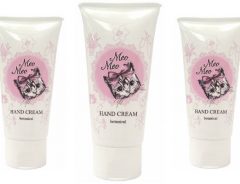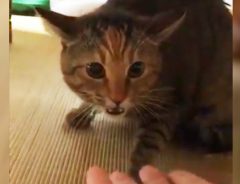
Source: Yosshi | © PIXTA
Virus-infected owners should avoid contact with their pets, Japanese vet society warns
- Tags:
- Cats / coronavirus / COVID-19 / Dogs / Pets / Veterinarian
Related Article
-

Archaeological Evidence Proves That Cats Have Always Been (Adorable) Jerks
-

Adorable dog mugs show a colorful coat when filled with a hot beverage
-

Japan must look to the medical industry to save its flat-lining tourism industry!
-

Make All The Cats Love You With This Cat-Attracting Lemongrass Hand Lotion
-

In Japan, Virus Busters service will disinfect coronavirus-infected homes, offices or hotels
-

Watch Japanese Cat’s Violent Reaction to Being Cheated on With Another Cat


On February 27th, the Veterinary Association of Hokkaido, the Japanese prefecture with the highest number of people infected with COVID-19 at the time of writing (54 confirmed), made an official announcement on their home page in response to a question which has surely been on the minds of pet owners everywhere:
For those who are infected with the novel coronavirus, what, if anything should they do to change the way they interact with their feline and canine friends?
Avoid contact
The association explains that while neither cats and dogs can become infected with COVID-19 nor are they known to be transmitters of the virus in its current state, the possibility that the virus will mutate cannot be rejected. For that reason, they recommend avoiding contact with your pets, wearing a surgical mask, and washing your hands with soap and water if you do have contact.
Leave it to the pros
Furthermore, when pet owners are hospitalized, the association urges them NOT to invite acquaintances or relatives to come to their home for the purpose of caring for their pets because they could infect those people in the process. Instead, they recommend owners to entrust the care of their pets to a pet hotel or other professional pet care service provider.
Before visiting the vet
In addition, if infected pet owners notice their pet getting sick, they should make a phone call before visiting their family vet to inform them of the situation concerning their infection.
Stay informed
Only alphacoronavirus is known to infect cats and dogs, resulting in mild diarrhoea in dogs and feline infectious peritonitis (FIP) in cats. COVID-19 is a betacoronavirus, with no current evidence of infection in cats and dogs.
However, the situation is changing rapidly, so please pay attention to the latest news updates.
Note: The Veterinary Association of Hokkaido does not claim it is presenting any original findings in this statement which, as they admit, they prepared by compiling information already published by the the WSAVA, the AVMA (American Veterinary Medical Association) and WHO's Myth Busters page.